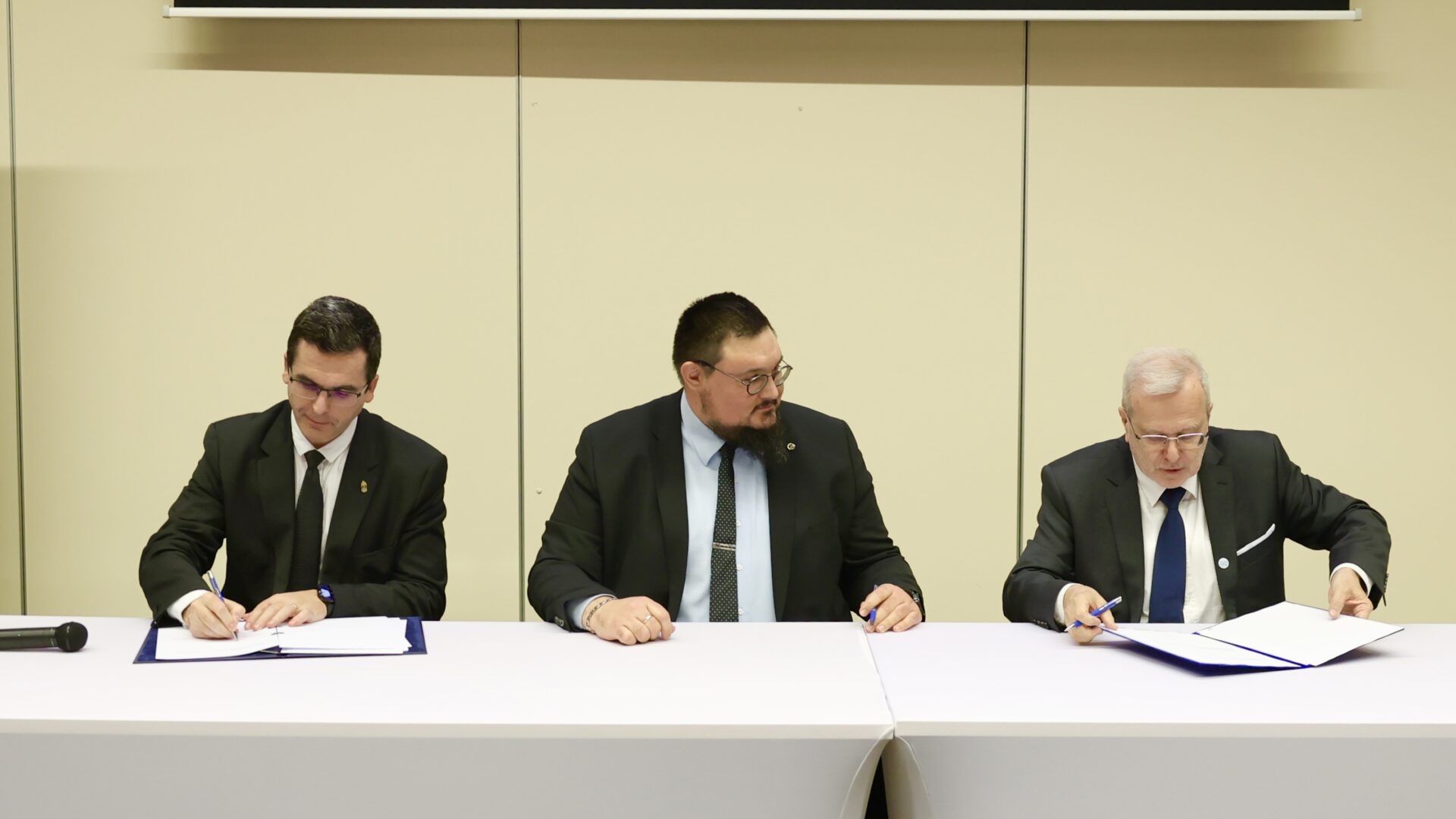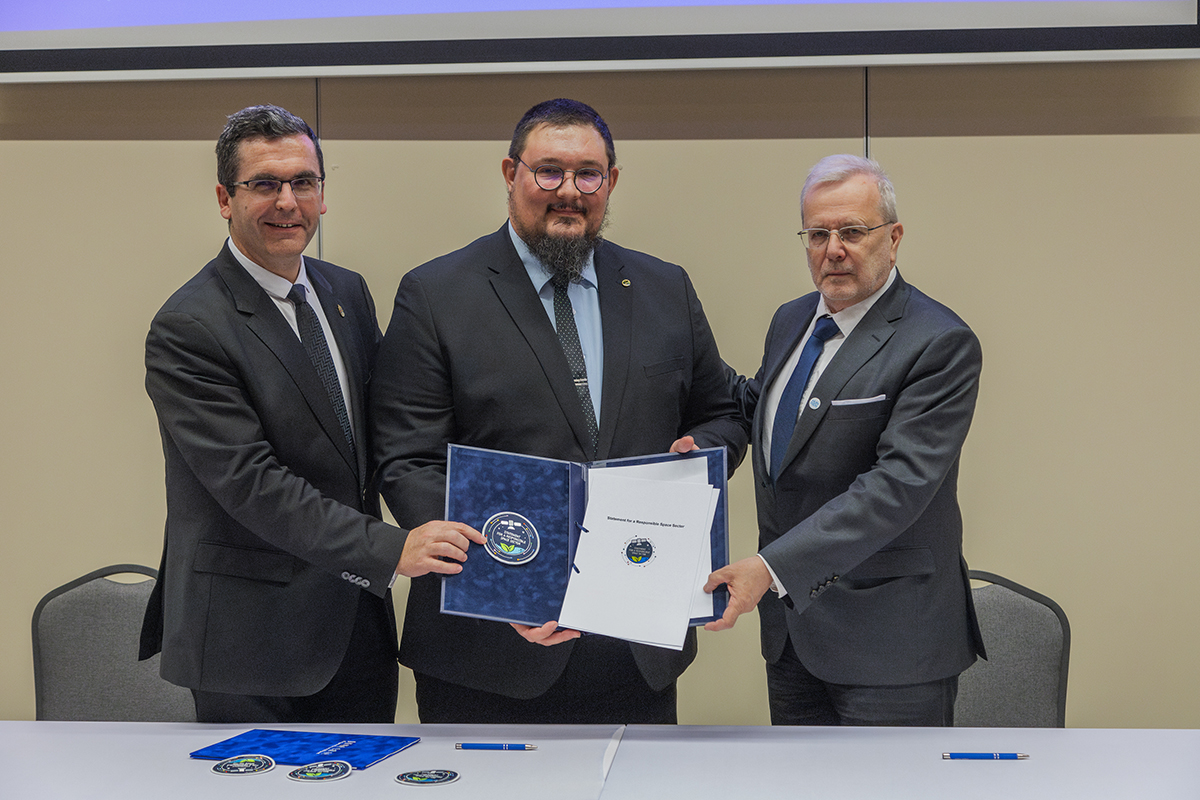Sustainability at the Heart of Space Policy
One hundred and fifty participants attended the Industry Space Day, organised by the Ministry of National Economy and the European Space Agency in Budapest on Wednesday, where they discussed space debris and sustainability. As part of their commitment to responsible space policy, the Ministry of National Economy, Óbuda University, and the HUN-REN Hungarian Research Network signed a joint declaration at the event. The occasion also provided an opportunity for Hungarian companies and researchers to present their business and scientific solutions.
On 5 February 2025, the Space Industry Professional Day of the European Space Agency's Space Safety Programme Committee was held in Budapest. The event was co-organised by the Ministry of National Economy and hosted by the HUN-REN Hungarian Research Network. Speakers included Tim Flohrer and Holger Krag, experts and programme managers from the European Space Agency; Szabolcs Szolnoki, Deputy State Secretary for Technology; Prof. Dr. Balázs Gulyás, President of the HUN-REN Hungarian Research Network; Roland Jakab, CEO of the organisation; and László Kiss L., astronomer. In their presentations, they raised awareness of space debris and highlighted the latest sustainability efforts and projects.

Photo: Obudai Egyetem - SJ
The meeting at HUN-REN RTD also marks a milestone for the research network, which aims to become a flagship of the Hungarian innovation ecosystem. "At the Hungarian Research Network, we attach great importance to many aspects of space research and are considering launching a comprehensive programme in the near future," said the President of HUN-REN in his welcome speech. Balázs Gulyás expressed hope that the European Space Agency (ESA) would be a key partner in this process, fostering fruitful collaboration with HUN-REN.

Roland Jakab, CEO of HUN-REN, stated that the renewal of HUN-REN offers exceptional opportunities to forge serious partnerships and scientific activities across the entire value chain. He added that HUN-REN aims to create an environment where researchers can conduct valuable research that is both economically and socially beneficial. HUN-REN views the European Space Agency and academia as key partners. Roland Jakab described the expansion of AI as a key driver for scientific progress and informed the professional audience about the HUN-REN AI 4 Science programme and its extensions (AI4Efficiency, AI4Innovation, AI1Science), which will be the central theme of the international HUN-REN AI Symposium in mid-May. He added that this would provide HUN-REN and its research activities with global visibility.
Szabolcs Szolnoki, Deputy State Secretary for Technology, highlighted the potential of Hungarian companies and researchers, who have already demonstrated the excellence of their technical solutions through successful tenders. One of the Ministry's tasks to enhance competitiveness is to support the participation of Hungarian innovative companies and scientific workshops in international space technology developments and missions.
Szabolcs Szolnoki, Deputy State Secretary of the Ministry of National Economy; Prof. Dr. Balázs Gulyás, President of the HUN-REN Hungarian Research Network; and Prof. Dr. habil. Levente Kovács signed the "Statement for a Responsible Space Sector".
The objectives of the statement include promoting sustainable development in the space sector and ensuring the socially and environmentally responsible management of all activities. It also encourages cooperation between European space actors to maximise the use of available resources and expertise while avoiding duplication of efforts.

